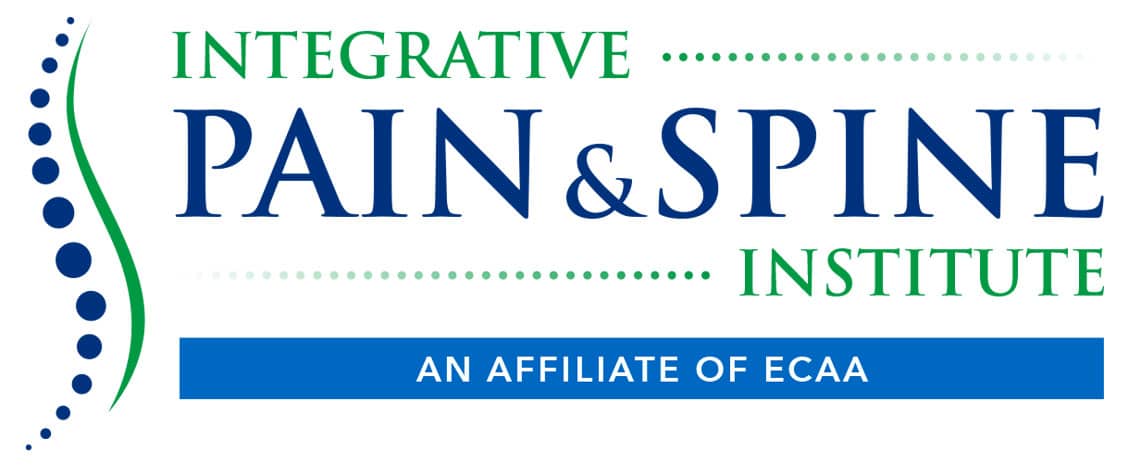Persistent neck or spine pain leads people to see a doctor for help with controlling pain and to make sure a serious medical issue has not developed. Should you see a spine doctor vs. a chiropractor? There is no right or wrong answer because each situation is unique.
Generally speaking, the chiropractor can assist with back and neck pain when a person does NOT have an advanced disease like degenerative disc disease, spinal stenosis, sciatica or the pain is caused by skeletal alignment issues due to physical activity or an injury. However, there are many times when you should choose a spine and pain management doctor like Dr. Manvar because the pain is due to a serious medical issue like a slipped disk or osteoporosis.
Looking for Pain Relief?
The National Health Interview Survey found that 50.2 million adults reported frequently experiencing pain, and the most common areas were back, hip, foot and knee pain. The main strategies employed to address the pain were massage and physical therapy. This implies that many pain cases are mild and acute. However, this is not always the case.
It is always important to manage acute or chronic pain because pain is a messaging system telling you something is abnormal in the body. It could be a sprain to a back muscle or an overstretched tendon that heals on its own after weeks of mostly home treatments, or the pain could be due to a serious health issue like thinning bones or a herniated disk.
Back Doctor vs. Chiropractor?
Choosing the best professional first requires understanding the differences between a chiropractor and a back doctor who is a pain specialist. Both are licensed healthcare professionals, but pain specialists like Dr. Manvar are board-certified medical doctors who are qualified to deliver treatment options the chiropractor cannot offer.
Chiropractor
A chiropractor specialist earns a Doctor of Chiropractic degree (D.C.) by attending a chiropractic college and passing a National Board of Chiropractic Examiners exam. The chiropractor’s philosophy is to focus on manual therapy and avoid using pain medications or needing surgery. The two main manual therapy techniques are:
1. Mobilization
This procedure uses manipulation, stretching and movement of muscles and joints to increase the range of motion. This is much different than techniques at physical therapy.
2. Spinal manipulation
Also called a chiropractic adjustment or manual therapy, spinal manipulation involves the chiropractor using a device or hands to apply thrusts or jolts to one or more spine joints.
These two techniques have been used to treat people with chronic low back pain.
Some of the typical health conditions a chiropractor addresses include the following:
- Spine pain anywhere from the neck to the lower back
- Whiplash
- Overuse injuries
- Headache
- Sprains and strains from exercise, sports activities and daily activities
- Tight muscles that restrict movement and make movement painful
- Arthritis
A chiropractor uses a visual inspection of the body, medical history and hands-on palpitation of the muscles and spine to identify problem areas. The D.C. will likely do an orthopedic assessment to assess bones, muscles, joints, spine and soft tissues. The assessment is based on doing things like moving a joint, testing joint reflexes, measuring the joint’s range of movement and testing for numbness to determine if there is nerve damage.
Can a chiropractor give injections? The answer is “no.” Sometimes, a chiropractor may refer a patient to a medical doctor for x-rays, MRI or CAT scan and other diagnostic tests or when it appears injections may be helpful. The chiropractor does not directly order these tests.
Pain Specialist
A pain specialist is a pain management medical professional specializing in pain diagnosis, treatment and management. Dr. Manvar is a medical doctor (M.D.) who completed 4 years of medical school, 4 years of anesthesiology residency and 1 year of interventional pain management to become double board certified in his specialties. This included over 10,000 hours of training under the guidance of trained doctors in order to complete his studies. Most pain specialists work with patients with chronic pain or pain that has endured for three months or longer.
A pain specialist has completed specialized training in addressing different types of pain. The physiology of pain is very complex, and people experience various conditions producing pain. Following is just a sample of the possible pain causes.
- Lower back pain
- Chronic neck pain
- Herniated spinal disk
- Sciatica
- Spinal stenosis
- Degenerative disc disease
- Arthritis
- Headaches
- Piriformis Syndrome
- Bone fractures
- Facial pain
- Fibromyalgia
Dr.Manvar’s first focused on non-surgical methods for decreasing or eliminating pain. The major differences between the chiropractor and the pain specialist are the pain doctor:
- Has more extensive training in pain mechanisms and the types of pain
- Can order and interpret diagnostic tests
- Can write prescriptions
- Can evaluate the condition with more knowledge about treatment options, including options like steroid injections, muscle relaxants, physical therapy, surgery, etc.
- Can perform outpatient procedures to treat the source of the pain immediately and effectively
Dr. Manvar will complete a medical evaluation, determine the diagnostic tests needed and develop a comprehensive pain management program. An advantage of seeing a pain specialist is that pain does not always have an obvious source. For example, neuropathic pain is a nerve issue with no protective purpose, like other types of pain meant to protect the body.
A pain doctor stays current on the latest pain studies and therapies and can coordinate treatment with other medical and health professionals to ensure you get the best plan possible to reduce or relieve pain or to manage the pain to improve the quality of life.
Should You See a Chiropractor or Pain Specialist?
How do you decide to see a chiropractor vs. doctor for back or neck pain? The chiropractor and the pain specialist are experts in their fields of study.
If you suffer from acute pain from an anatomical irregularity in the spine, a chiropractor may be able to bring the spine back into alignment and assist with beneficial stretching. Aligning the spine could reduce nerve compression, muscle and tendon tension and pain. You will know quickly whether the chiropractic approach causes more pain by increasing inflammation when the spine and surrounding tissues are inflamed. Chiropractic care generally can help with old injuries in people who are generally healthy.

A Pain Specialist/Doctor is more qualified to diagnose the source of the pain through various medical tests and develop a comprehensive pain management plan. If you have a spinal disc condition like a herniated disc, spinal fracture, osteoporosis, broken bones, myelopathy or nerve compression, motor weakness or a physical abnormality or any other serious medical condition, you should not use chiropractic care without consulting with a pain specialist.
Interdisciplinary pain management is an option in some cases. A study compared military members who had low back pain and received only traditional medical care to those receiving both traditional and chiropractic care. Those receiving both types of care reported a statistically significant moderate improvement in the intensity and disability of low back pain after six weeks. Traditional medical care included medications, self-care, physical therapy and referral to a pain clinic. The chiropractic care program consisted of low back spinal manipulation, rehabilitative exercise, heat and cold treatments and other manual therapies.
First Consult with a Medical Doctor
The best approach is to consult with your primary physician first and get a recommendation for a pain specialist if you have any of the medical conditions mentioned or if you have suffered with pain for an unknown reason. The pain specialist can then decide if chiropractic care is a good option or if incorporating chiropractic care into the treatment plan is helpful. It can be challenging to decide the best medical care path, but your doctor will guide you based on the facts.
Call us today to learn more if you should be evaluated by Dr. Manvar! 704-317-1440
